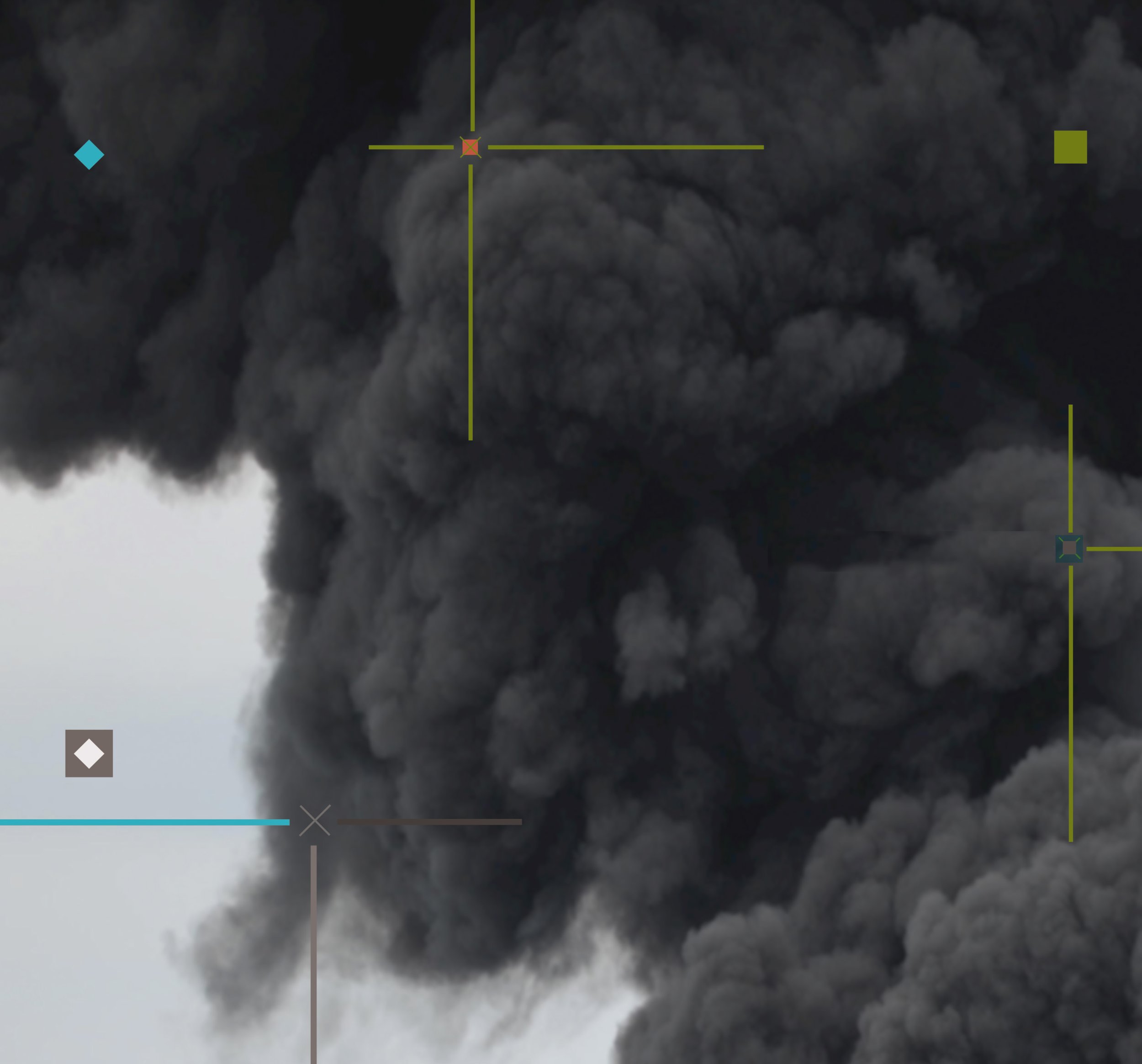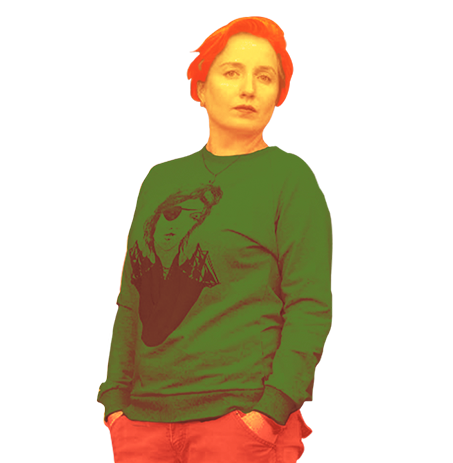
KATERYNA KALYTKO
Kateryna Kalytko was born in Vinnytsia in 1982. She is a poet, novelist, and translator. She had published six collections of poetry and one novel. Her poems have appeared in numerous anthologies of Ukrainian literature, and her works have been translated into English, Polish, German, Hebrew, Russian, Armenian, Italian, and Serbian. Kalytko is an acclaimed translator who translates Bosnian, Croatian, and Serbian works into Ukrainian, having translated works by authors such as Adisa Bašić, Nenad Veličković, and Miljenko Jergović. She received the Metaphora award in 2014 for her translation of Jergović’s works. She has been the recipient of many literary fellowships, among them the Central European Initiative Fellowship for Writers in Residence in 2015. Kalytko is also the founder of the Intermezzo Short Story Festival, the only festival in Ukraine exclusively dedicated to the genre of the short story.

From the Translators
Olena Jennings & Oksana Lutsyshyna
In Kateryna Kalytko’s poetry beautiful images come together like puzzle pieces to create violent and shocking images of war and create an atmosphere depicting the sense of loss and pain that is experienced during a search for safety and identity in violent times. War colors the way we see images. It transforms them and turns them upside down. Kalytko portrays this in her poetry. The beautiful is transformed, just the way that beautiful objects can be distorted when viewed in a state of depression and fear. Kalytko is very attuned to tragedy and has been working on translating Balkan authors lately. She is focused on integrating the experience of Bosnia/Croatia, and drawing parallels with the Ukrainian experience – not in terms of the nature of conflict, but in terms of living through the horrors of war.
The best example of this transformation is in the poem in which Kalytko writes, “your shattered head is like an aquarium,/ night fish swim through your whole body, stigmata/ beneath skin.” The aquarium is a playful, bright image that contrasts with the head and prostrate body. Another example is “the poppies just blossomed,/ and they sing their lullaby to the war” later in the collection. The beauty of the poppies’ lullaby can be seen as eclipsed by the violence of the war. A third example is “I carry a dark-eyed fiddle/ in the hand, like a dead child.” Kalytko begins that poem with an image of the beauty of music, but it quickly transforms to a shocking image of a dead child. In “lifeless heads are strung on roots by the eyes” another beautiful image of nature turns ugly.
The war has displaced many people and this is also a main focus in Kalytko’s poems. In her poems, the protagonist searches for a home. “Searching for a home…like a bird caught in a copper trumpet,” Kalytko writes. Later she writes, “Fear serpents and love, walking barefoot in the snow.” This offers an image in which the protagonist is told what to fear and the searching becomes so desperate that it is possible to suffer frostbite in the snow. In the poem “So, nomad, a home, a home is not something you have,” she directly addresses the refugee status. It also addresses the hopelessness of it, “not only now, but it will never be.” In another poem, “Home is still possible there, where they hang laundry out to dry.” The banalities of life have been lost to the war and the sense of comfort that something as simple as laundry can impart. In the same poem, a soldier from a different war seems to be searching for himself in his own apartment, “Behind the wall a drunken one-armed neighbor stumbles around his house/ confusing all the epochs.” War can displace us psychologically even if we remain in our homes. Later in the poem, the plentiful image of fruit contrasts with the ominous mustard gas. In the following poem, Kalytko writes “At dawn saliva becomes poison in every mouth.” The protagonist’s own body turns against her. The protagonist’s body could also represent the country before the war. In yet another poem, “This loneliness could have a name, an Esther or Miriam,” the writer is searching for a type of shelter that seems to be present in a woman’s name. This is an unexpected shelter found in language and in personifying the loneliness. Beauty, comfort, and stability are transformed into homelessness, desperation, and ugliness by Kalytko’s adept use of contrast and transformation.
As for translating, the challenge was to render the emotional temperature of Kateryna Kalytko’s poetry. She is – for the English-speaking world – very, very emotional. The English-speaking world favors calmer intonations, and if something is over the top, it can be labelled melodramatic. In Ukrainian, Kalytko uses a lot of approximate rhymes (Ukrainian, unlike English, is rich that way – with plenty of precise rhymes available, since it is a highly inflected language). But Kateryna chooses (and acts as a bit of a trend-setter in this regard) approximate ones, as if to show that nothing we know we really know, nothing is precise, and we approach life only by approximation. Any theory, any philosophy, any poetry – or maybe language itself as-we-know-it – is but an approximation, and to hope for it to be otherwise means to be too arrogant. Her approximate rhymes, to us, are a sign of humility and deep understanding of the connectedness of things.
Another challenge was in the rhyme itself. Rhyme is not so common for poetry in English, especially if we are talking about poems on serious, difficult topics, such as war, violence, and grief. Rhyme in English is mostly reserved for "lighter” genres; and yet, to strip Kateryna Kalytko’s poems of rhymes completely also seemed like a bad option. We agreed (and our editors supported us) that it would be best to translate while preserving a small numer of rhymes, and to compensate for the losses, inevitable in poetry translation, by graphical means: at times, breaking the stanzas into smaller ones, or changing the length of a line. This way, the rhymes that are present are not perceived as an indication of a "lighter” genre at all: rather, by suddenly appearing, they punctuate the text, arrest the readers’ attention, and emphasize the tragic nature of the events and feelings of the poem. They may be, quite literally, that „tiny specks of blood” on the mother’s dress from the poem „He Writes,” their sudden appearance resonating with the emotions of a human being made to experience violence.
The contrast of beautiful and violent images creates dense, emotional poetry in which the writer becomes a refugee in search of a shelter, and of identity at the time of war.
